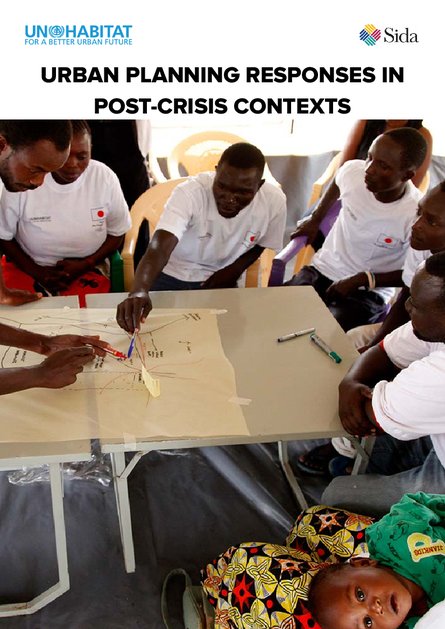
UN-Habitat has worked for decades to bring spatial and long-term planning into post-crisis scenarios. ‘Urban Planning Responses in Post-Crisis Contexts’ highlights strategies and lessons from UN-Habitat’s Urban Planning and Design Lab during the period of UN-Habitat’s 2014- 2019 Strategic Plan. It endeavours to guide practitioners and to increase understanding between the humanitarian and urban planning communities, and discusses the role that urban planning plays in developing holistic post-crisis responses.
The publication outlines the ten different strategies that the Lab has developed to provide effective planning support and tools: (1) putting special emphasis on the planning process; (2) using urban planning as a coordinating tool among actors; (3) quickly structuring an orderly settlement of land for effective service delivery and management; (4) setting the area on a trajectory of long-term sustainability; (5) using a principles-based approach; (6) including and consulting to foster social cohesion and ownership; (7) planning within the larger geography; (8) connecting and aligning with the local government perspective and role; (9) identifying and guiding investments strategically; and (10) creating the plan as a management tool for actors and local governments. It further explores the three typologies of support that the Lab has found to be the most useful in post-crisis contexts: (A) supporting settlement profiling; (B) supporting participatory decision-making; and (C) supporting institutional capacity building.
While each post-crisis response must be carefully tailored to the specific context, and sweeping recommendations cannot be applied across the board, these strategies and support areas are explored in this publication to provide guidance and support to practitioners.
